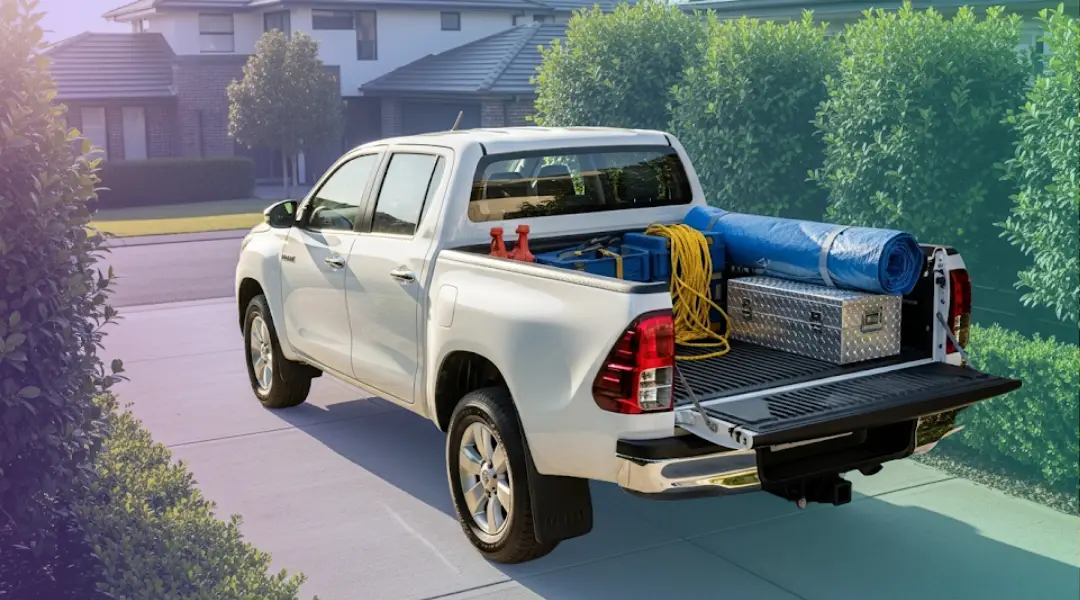Moving to a new home is a significant milestone, and the process can be overwhelming. One crucial decision you’ll need to make is whether to hire a professional moving company or rent a moving van yourself. Renting a moving van can be a cost-effective option, but it’s essential to do your research and choose the right vehicle for your specific needs.
Understanding Moving Van Rentals
Types of Moving Vans Available
- Small vans: These are perfect for moving smaller households, such as studio apartments or one-bedroom homes. They typically have a cargo area of around 10-15 feet and can accommodate a limited number of boxes and smaller pieces of furniture.
- Medium vans: Suitable for moving two-bedroom apartments or small houses, medium vans offer more space than small vans. Their cargo areas range from 15-20 feet, allowing you to transport larger items like couches, dining tables, and appliances.
- Large vans: For larger moves, such as three-bedroom homes or more, large vans are the best option. With cargo areas of 20-26 feet, they can accommodate a significant amount of belongings, including large furniture pieces and multiple appliances.
- Box trucks: These are the largest type of moving van and offer ample space for moving large households. They are ideal for those with a lot of furniture, appliances, or heavy items. Box trucks typically have cargo areas of 26 feet or more.
Key Considerations When Selecting a Moving Van
- Size of your belongings: Measure your furniture and appliances to determine the minimum size of the van needed. Consider the height, width, and length of each item.
- Distance to your new home: The distance you’ll be driving will affect the overall cost of the rental. Longer distances may justify renting a larger van to avoid multiple trips.
- Driving experience: If you’re not comfortable driving a larger vehicle, opt for a smaller van. Some rental companies may require additional fees or restrictions for drivers with limited experience.
- Additional features: Check if the rental company offers features like dollies, ramps, or blankets. These can help make your move easier and safer.
Cost Factors in Renting a Moving Van
- Base rate: The initial cost of renting the van for a specific period. This rate is typically based on the size of the van and the rental duration.
- Mileage fees: Charges based on the distance travelled. These fees can vary depending on the rental company and the type of van.
- Insurance: Optional coverage to protect against damage or theft. While not required by all rental companies, insurance can provide peace of mind and protect you from unexpected costs.
- Fuel costs: You’ll be responsible for filling up the van with fuel. Consider the fuel efficiency of the van and the distance you’ll be travelling when estimating costs.
- Drop-off fees: Charges for returning the van to a location different from where you picked it up. If you plan to drop off the van in a different city or state, be aware of any additional fees.
Tips for Estimating Costs and Staying Within Budget
- Get multiple quotes: Contact several rental companies to compare prices and options.
- Consider discounts: Ask about discounts for military personnel, students, or AAA members.
- Plan your route: Use a mapping app to estimate the distance and potential tolls.
- Pack efficiently: Maximize space in the van by packing strategically.
- Set a budget: Determine how much you can afford to spend on the move and stick to it.
- Consider additional costs: Don’t forget to factor in other expenses such as packing materials, tolls, and parking fees.
By carefully considering these factors and following these tips, you can choose the right moving van for your needs and ensure a smooth and stress-free move.
Renting a Moving Van: Essential Tips
Booking in Advance and Comparing Prices
- Book early: Moving companies and rental truck companies get busy during peak moving season (spring and summer). It’s best to book your rental van at least a few weeks in advance, especially if you have specific dates in mind.
- Compare prices: Get quotes from several rental companies to find the best deal. Some companies may offer discounts for booking online or in advance.
- Consider different rental options: In addition to traditional moving trucks, you may also want to explore options like PODS or U-Haul moving containers, which offer flexible storage and moving solutions.
Understanding Rental Agreement Terms and Conditions
- Read the fine print: Before signing the rental agreement, carefully read the terms and conditions, including the rental rates, mileage fees, insurance options, and any additional charges.
- Ask questions: Don’t hesitate to ask the rental company representative any questions you have about the agreement or the rental process.
- Understand the insurance policy: Make sure you understand the coverage provided by the rental company’s insurance and any additional insurance options you may need.
Inspecting the Van Before Driving
- Thoroughly inspect the van: Before driving off the lot, inspect the van for any damage or scratches. Document any existing damage with the rental company representative.
- Check the tyres and brakes: Ensure that the tyres are properly inflated and the brakes are in good working condition.
- Test the lights and signals: Make sure all the lights and signals are working properly.
Insurance Coverage
- Review your auto insurance: Your auto insurance may cover some aspects of a moving truck rental, but it’s important to check with your insurer to understand the specific terms and conditions.
- Consider additional insurance: If your insurance doesn’t cover moving truck rentals or doesn’t provide enough coverage, you may want to consider purchasing additional insurance from the rental company.
- Weigh the risks: Decide whether the potential risks of being underinsured outweigh the cost of additional coverage.
Packing Efficiently for Your Move
Decluttering and Organising Belongings
- Start early: Begin decluttering and organizing your belongings well in advance of your move. This will help you identify what you need to pack and what you can donate, sell, or discard.
- Create a packing plan: Develop a plan for packing each room in your home. This will help you stay organized and ensure that everything gets packed efficiently.
- Downsize: Take this opportunity to downsize and get rid of any items you no longer need or use. This will make your move easier and less expensive.
Packing Materials and Supplies
- Boxes: Invest in sturdy boxes of various sizes.
- Packing paper: Use plenty of packing paper to wrap fragile items and protect them from damage.
- Bubble wrap: Use bubble wrap to protect delicate items like glassware, electronics, and artwork.
- Tape: Use strong packing tape to seal boxes securely.
- Labelling supplies: Use labels to mark the contents of each box and where it should be placed in your new home.
Packing Techniques and Tips
- Pack heavy items first: Start by packing heavy items like books and furniture. This will help distribute the weight evenly in the moving truck.
- Use a colour-coding system: Use different coloured packing tape or labels to identify boxes for different rooms or categories. This will make unpacking and organizing much easier.
- Pack fragile items carefully: Wrap fragile items individually in packing paper and bubble wrap, and then place them in sturdy boxes.
- Fill empty spaces: Fill any empty spaces in boxes with packing paper or bubble wrap to prevent items from shifting around in transit.
- Label each box with its contents and destination: This will help you keep track of your belongings and make unpacking a breeze.
- Don’t forget to pack essentials: Pack a box or tote with all the essentials you’ll need for your first few days in your new home, such as toiletries, kitchen supplies, and a change of clothes.
Loading the Moving Van Safely
Weight Distribution and Balance
- Distribute weight evenly: Load heavy items towards the front of the van to maintain proper weight distribution and prevent the van from tipping.
- Avoid overloading: Don’t overpack the van, as this can make it difficult to drive and increase the risk of accidents.
- Balance the load: Try to balance the weight on both sides of the van to prevent it from leaning to one side.
Securing Items to Prevent Damage
- Use straps and tie-downs: Secure items to the floor of the van using straps or tie-downs to prevent them from shifting during transit.
- Avoid loose items: Don’t leave any loose items in the van, as they can become projectiles in the event of a sudden stop or accident.
- Protect fragile items: Place fragile items in boxes and wrap them with packing paper and bubble wrap. Secure them in place with straps or tie-downs.
Accessibility and Ease of Unloading
- Load items strategically: Load items that you’ll need to access first near the back of the van. This will make unloading easier and more efficient.
- Label boxes clearly: Label boxes with their contents and destination room to help you find what you need quickly.
- Plan your unloading route: Before you start unloading, plan your route to ensure that you have clear access to your new home.
Driving a Moving Van: Tips and Tricks
Understanding Traffic Laws and Regulations
- Check local laws: Familiarize yourself with the traffic laws and regulations in the areas you’ll be driving through. This includes speed limits, lane restrictions, and parking regulations.
- Be aware of height restrictions: Pay attention to height restrictions, especially when driving under bridges or overpasses.
- Avoid rush hour traffic: If possible, plan your trip to avoid rush hour traffic to reduce stress and travel time.
Maneuvering a Large Vehicle
- Practice turning: Practice turning the van in a large parking lot or empty area to get a feel for its size and maneuverability.
- Use mirrors: Use your mirrors to check blind spots and avoid accidents.
- Back up carefully: When backing up, use your mirrors and turn your head to check for obstacles behind you.
Planning Rest Stops and Breaks
- Take breaks: Take regular breaks to rest, stretch, and refocus. This will help prevent fatigue and ensure that you’re driving safely.
- Plan rest stops: Plan your route to include rest stops with amenities like restrooms, food, and gas stations.
- Avoid driving late at night: If possible, avoid driving late at night when you’re more likely to be tired.
Additional Considerations
Fuel Efficiency and Costs
- Fuel economy: Consider the fuel efficiency of the moving van you choose. Larger vans tend to have lower fuel efficiency, so if you’re concerned about fuel costs, opt for a smaller vehicle.
- Fuel prices: Keep an eye on fuel prices and try to time your move to coincide with periods of lower prices.
Toll Roads and Parking Fees
- Research toll roads: If your move involves travelling on toll roads, be sure to factor the costs into your budget.
- Consider parking fees: If you’ll need to park the moving van at your new home or during the move, be aware of any parking fees or restrictions.
Moving Insurance and Coverage
- Review your insurance: Check with your homeowner’s or renter’s insurance to see if it covers any damage to your belongings during a move.
- Consider additional coverage: If your insurance doesn’t provide enough coverage, you may want to purchase additional moving insurance.
Conclusion
Renting a moving van can be a cost-effective way to move your belongings, but it requires careful planning and preparation. By considering factors such as the size of your belongings, the distance to your new home, and your driving experience, you can choose the right van for your needs.
Recap of Key Points:
- Plan: Book your moving van in advance and compare prices from different rental companies.
- Pack efficiently: Declutter, organize and pack your belongings carefully to maximize space in the van.
- Load safely: Distribute weight evenly, secure items, and plan for easy unloading.
- Drive responsibly: Follow traffic laws, maneuver the van safely, and take regular breaks.
- Consider additional factors: Factor in fuel costs, toll roads, parking fees, and insurance coverage.
Rent a Moving Van at Alpha Car Hire
Experience a hassle-free move with Alpha Car Hire. We offer a wide range of moving vans to suit your needs, along with excellent customer service and competitive rates.
Rent a moving van today (Brisbane, Gold Coast, Logan) and enjoy a smooth transition to your new home.




